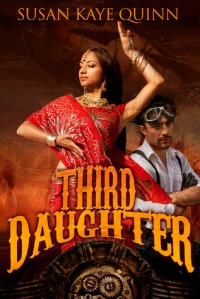I’m happy to announce that Goodreads added a new feature last week: Ask the Author. You can find an author you like on Goodreads and ask them questions about their work through their profile page. I signed up, so you can ask me questions here.
Itty Bitty Erlenmeyer Flasks!
One of the labs at the university where I work was holding a giveaway to get rid of their old junk. I checked it out, and among the offerings were the tiniest Erlenmeyer flasks:
Each flask holds 5mL of fluid, as you can see in the next picture:
I have no earthly idea what they could be useful for, but there they were.
Guest Post on T.B. Markinson’s Blog
Hey, everyone. Today I’m guest-posting on T.B. Markinson’s Blog, Making my Mark. Go check it out for everything you ever wanted to know about TV Tropes!
Tomato Garden II
Twin Cities Green Line
The Twin Cities now have a public transit system that’s fit for the twenty-first century. Last week, the Green Line went online, a light rail system that connects the downtowns of Minneapolis and Saint Paul. Even though it was raining, there were crowds of celebrators there to take the free trip on the first day.
Interview on Speculative Soapbox
Check it out! TJ Redig interviewed me on Speculative Soapbox.
Third Daughter by Susan Kaye Quinn
 This review contains spoilers about who winds up with whom.
This review contains spoilers about who winds up with whom.
I’ve wanted this book to exist for a long time. For about as long as I’ve known steampunk existed (since about 2002), I’ve wanted to see a steampunk set in an India-like society. In real life, India got a huge infusion of British culture during Europe’s industrial revolution, setting up clashes between modernity and tradition, colonizer and colonized, and all sorts of fodder for great stories. So when Guin over at Twinja told me this book is finally real, I was pretty pleased.
Our heroine, Aniri, is the third daughter of the queen of Dharia. She’s a minor enough noble that she expects to marry who she wants once she gets her majority, but then her mother asks her to accept a marriage proposal from Malik, prince of the neighboring kingdom of Jungali. For espionage reasons. The premise? Fantastic! The execution? Well, it was all right.
What I didn’t like about the book is that it’s so soppy. Poor Princess Aniri has to choose between two men, both of whom are gorgeous, and one of whom’s a prince and the other is at least well off. And I have yet to meet the heterosexual man who talks like either Devesh or Prince Malik. As a matter of fact, I can’t think of anybody I know who talks like them. All these undying declarations of love are a romance novel thing, which isn’t my thing.
I thought it was too convenient that Devesh turns out to have another woman on the side. The story would have had subtler and more complex character development if Devesh had turned out to be a traitor and loved Aniri deeply. As it is, Aniri never has to make any difficult choices after all.
General Garesh walked straight out of a James Bond movie. Not my kind of villain.
What I really liked was the spy part of the book. Quinn sets up a three-way power struggle between the nations of Dharia, Samir, and Jungali that was believable and well thought out. I appreciate that Dharia’s vast empire has visible means of support. The Dharian people have a fertile wheat belt that supports their wealth, which we get to see.
Aetheroreceiver protocol is cool. The kingdom of Jungali is cool. It’s this sort of high-tech Nepal full of cliff cities where people get around by high wire lifts.
I liked Janak a lot. If the main characters were half as interesting as him, this book would have been fabulous. As it is, the book has great derring-do, pretty good politics, and characters who could use more depth.
UK versus US English
As an American trying to write a novel where most of the main characters are Londoners, this comic encapsulates how I feel right now:
Image courtesy of Life after the B.O.E.
Tomato Garden
Interview on Runes of the Bard
Check out this interview Jerome Brooke did with me on his blog!














